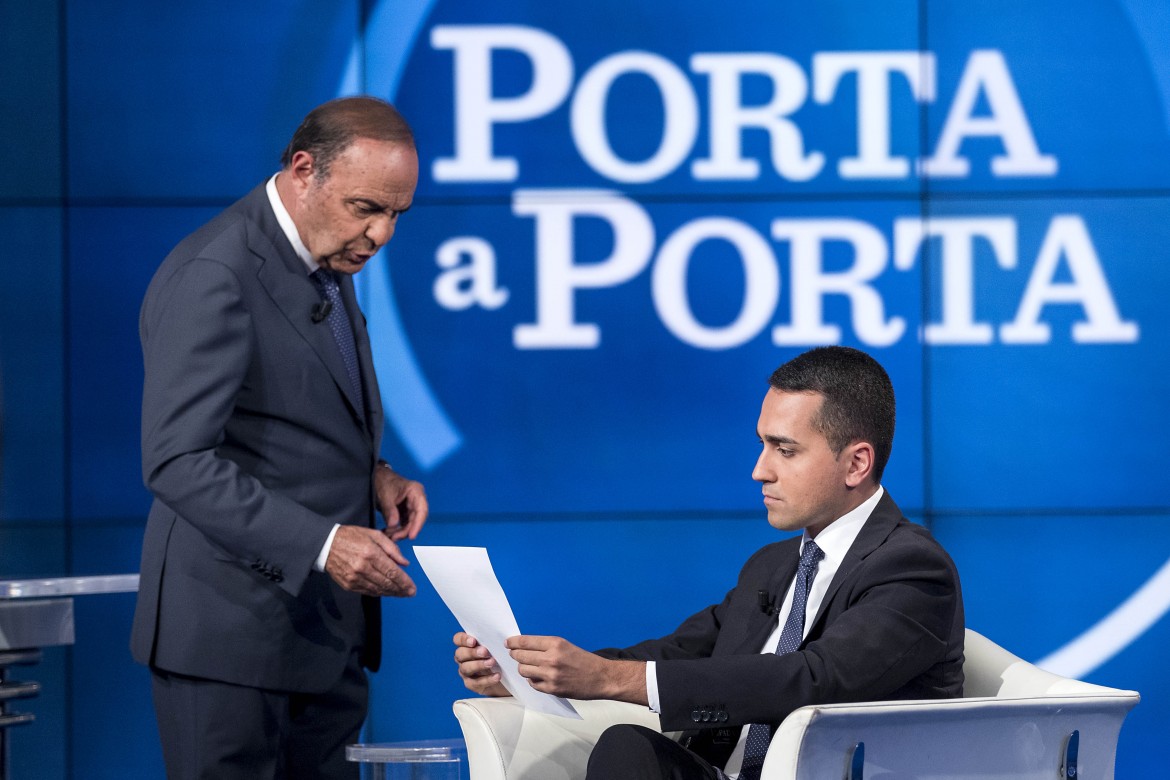Commentary
The real problem in the Italian press
Broadcasters in particular go to unbelievable extremes in their over-representation of the political class as the most important source of public information. It is as if the words of a few politicians, who constantly seem to have a forest of hungry microphones stuck in their faces, are what our future truly depends on.

The verbal attacks against journalists from Italian government officials and leaders of the 5 Star Movement are a serious matter, and they have been rightfully met by a chorus of outraged reactions. Especially since the government is also, paradoxically, threatening indiscriminate cuts to the public funding for the cooperative press, which is an indispensable factor promoting journalistic pluralism. However, there is indeed a problem with the situation of the press in Italy, which suffers from distorting factors that have also been identified in the most advanced Western democracies.
The problems are well known and have been debated for years: from Berlusconi’s outrageous concentration of media power to the increasing job insecurity among journalists, especially young ones, who are seeing their professional freedom severely restricted. Another issue which certainly must be noted is journalists’ predilection for disseminating opinions that go far beyond the known facts.
Our largest print outlets have not distinguished themselves by particular efforts toward objectivity in how they present the issues. The open partisanship—much like rooting for one’s home team—that, for instance, La Repubblica is displaying in favor of the Turin-Lyon high speed railway, with their recent front-page headlines proclaiming the existence of entirely fictitious penalties of billions of euros in case the project is abandoned, is a textbook case of a too-strong attachment to opinions.
In this particular case, beside the essential futility of the project, which has been documented on numerous occasions by the experts from NO-TAV, it’s enough to consider how much more the rail infrastructure in southern Italy would benefit from such funding. That this is an old project is not a good argument. If changes in terms of economic flows have made it obsolete, we must stop and change our objectives accordingly, since money is, by definition, a scarce resource. And a daily newspaper whose interests are supposed to align with the public welfare should be able to do its part constructively, even if what it wants to do is opinion journalism.
From the position of a simple lay observer, I would like to focus on another phenomenon that seems to be getting little attention, and for which television undoubtedly bears greater responsibility than print media. I am referring to the image of the country that arises out of the coverage in this type of media. It’s unlikely that anyone has failed to notice the disproportionate importance that journalists, especially on television, afford to the members of the political class.
It is a phenomenon that is affecting a large number of programs, at all hours of the day and night, on both public and private channels. But our newscasts in particular go to unbelievable extremes in their over-representation of the political class as the most important source of public information.
By doing this, they create a hierarchy of values in the public imagination that severely distorts reality. It is as if the words of a number of men and women of rather modest talents, who constantly seem to have a forest of hungry microphones stuck in their faces, are what our future truly depends on. Furthermore, at the moment the most prominent exponents of this class are spouting pure nonsense. We are dealing with the least-prepared and least-capable political class in the entire history of the Italian Republic (and this did not start with the current government!)—one that journalism is indirectly working to cast as one of the pinnacles of respectability of our social hierarchy.
Such an overrepresentation of the political is lowering the cultural standards of our television beyond measure, and it is at the same time casting a pall over the entire country, completely distorting its overall image. At the same time, I want to be careful and give credit where credit is due: I will grant that in recent years, our public television has improved and enriched its cultural offering—as the expression goes.
Until a short time ago, it was impossible to even imagine high quality programming like that which one can watch on Rai 5, Rai Storia or Rai Scuola nowadays, not to mention the valuable work of promoting books that Corrado Augias has been doing for years. However, these are, in the end, aimed at exclusive niches of a small number of insiders, and, although highly useful, they cannot make a dent in the dominant image of a country entirely conformed to the character of its political and governing class.
The reason for this severe bias is that the most vital, creative and cultured parts of Italy are neither mentioned nor represented, both in broadcast journalism and in the newspapers. This is an observation that I have drawn from my long experience as a scholar who constantly travels around Italy to give lectures and take part in conferences.
Many hundreds of colleagues who are in a similar situation as myself can testify to this state of affairs. It happens very often that I attend important cultural initiatives, which would truly deserve to be made known to the public, but which are rarely graced by the presence of any TV cameras, even from regional stations, or of any journalist covering them. I am referring to events organized by university departments, scientific societies, schools, publishing houses, cultural associations, academies, municipalities and so on, which could offer a less depressing image of Italy than the one we get from the frantic chatter of everyday politics. Indeed, if one wants to have some reporters present at such events, it is essential to have some politician there, no matter how modest in rank. Because, after all, he would be a familiar face from TV.
Originally published at https://ilmanifesto.it/la-stampa-e-il-paese-una-distorsione-storica/ on 2018-11-15
